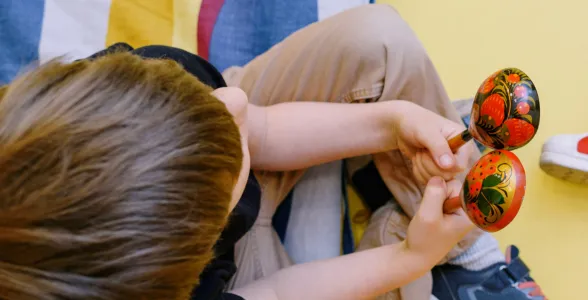
Keeping Clients Safe Online
When we started delivering music therapy online, many of us wondered how we could possibly replicate the sense of safety and trust that usually comes from sharing a room together. As Music Therapists, our priority has always been to create secure, supportive spaces where people can explore, express and connect through music. The shift to digital practice didn’t change that priority but it did invite us to think differently about what safety looks like.
One of the first things we learned was that safeguarding online needs to be just as robust as safeguarding face-to-face. We had to consider new questions: how do we protect confidentiality in a virtual setting? How do we respond if a safeguarding concern arises during a session? How do we make sure clients feel held and contained, even when we’re separated by a screen?
Over time, we developed approaches that gave clients and families the reassurance they needed. We carefully chose secure, professional platforms and made sure that every session was private and confidential. We thought carefully about boundaries, not just the technical ones like meeting links and access, but also the relational ones: how to begin and end a session in a way that feels safe, how to set expectations around being present on screen, and how to manage the inevitable moments when technology fails.
Safety online has also meant being creative in how we involve others. For some clients, a parent, carer, or staff member being present helps provide the same sense of containment that the therapy room would. For others, the freedom of being in their own space allows them to open up more fully.
Holding these nuances in mind has been part of our ongoing reflection as practitioners.
Perhaps the most important thing we’ve discovered is that safety is not just about procedures, policies, or platforms, though all of these matter deeply. It is about presence. Even through a screen, clients can feel whether they are being listened to, respected and cared for.
Music has a way of bridging the physical gap, creating moments of connection that feel every bit as real and grounding as those that happen in person. As we continue offering digital music therapy alongside face-to-face work, we remain committed to keeping safety at the heart of everything we do.
Online or offline, our role is the same: to create spaces where people feel protected enough to take risks, explore their emotions, and find their voice through music. That commitment, we believe, will always transcend the medium.
Support our Work
Help us to provide Music Therapy to the most vulnerable and isolated members of our society
Donate here

.webp)


.png)